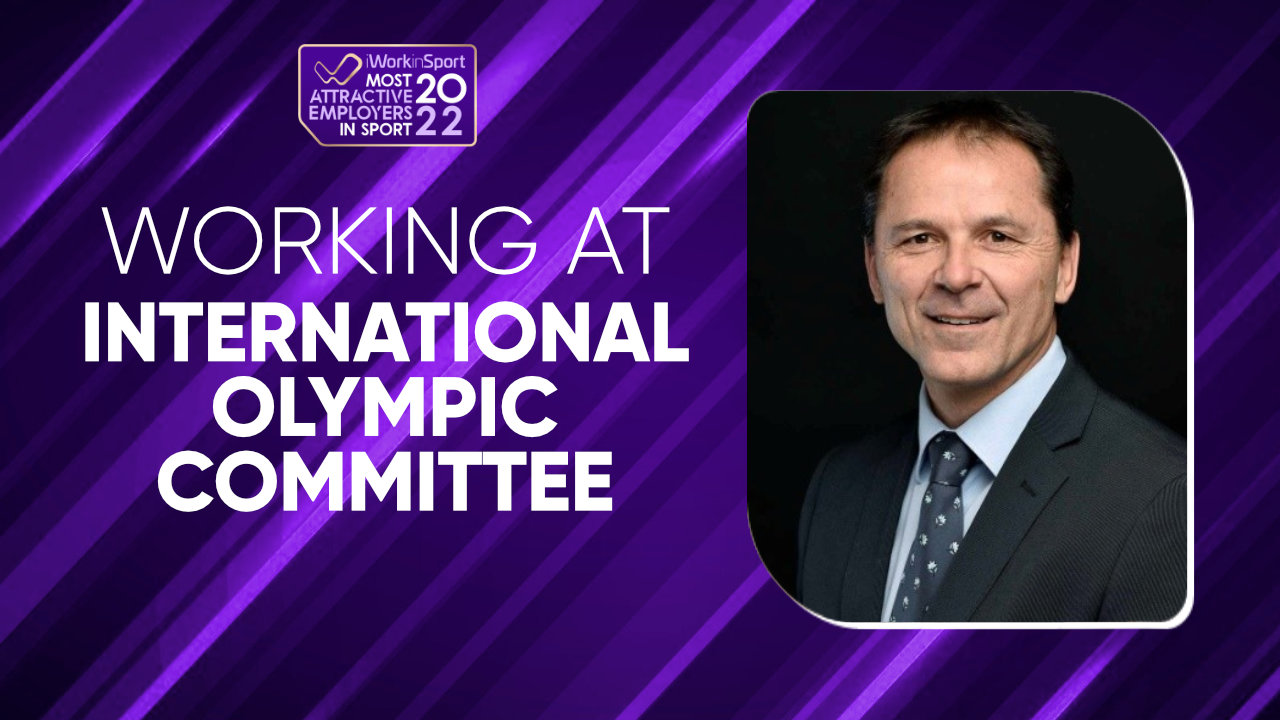Xavier Tissières is the Director of Human Resources at the International Olympic Committee. The IOC was named earlier this year one of the Most Attractive Employers in Sport by a report published by iWorkinSport. This is one of five interviews with top recruiters in the industry featured in the publication.
The study surveyed more than 1,600 people from all continents, with the majority already working in sport, and asked them a simple question: “If you could choose to work anywhere in sport, where would that be?”
Initially, the respondents chose organisations divided into nine categories, and at the end, they indicated one single preferred choice, overall – the “Employer of their Dreams”.
The publication features rankings of the most attractive employers in sport divided in the following categories: Football Clubs, Sports Teams (other than Football), Sports Teams in the USA, Sports Leagues, Sports Governing Bodies, Event Organisers, Sports Marketing Agencies, Sponsors, Sporting Goods Companies and Sports Tech.
Additionally, the report presents the aspects that candidates rate as most important when deciding where they would like to work.
Congratulations, the IOC was named one of the most attractive employers in sport for the second year in a row. Why do you think that is?
There are many reasons for this: the Games continue to play an important role in this attractiveness, but certainly also the fact that we take care of our employees. A very concrete example is the fact that during the long period of the pandemic we reassured everyone that they would keep their jobs and used the opportunity to put a special emphasis on training and development.
What are the main common traits/skills that you look for in candidates applying to work at the IOC?
The activities and projects we carry out at the IOC require, above all, a spirit of collaboration, flexibility, openness and ownership as we are in the field of events.
What makes an application stand out and (almost) guarantee an interview?
My answer is somewhat basic and obvious, but first of all the application has to meet all the criteria of the job description to show that the person is The Best fit for the position. Then, if it is a position that is related to Sports or Games, then it is also key that the person is able to showcase her/his field experiences (in a sports organisation such as a club, association, federation).
Standing out during an interview means you're leaving an unforgettable impression that can lead to your hiring. The IOC may take an interest in how much you know about the organization and your inspiration for applying to this role.
Some tips to stand out an interview at the IOC:
- Do some research before your interview
- Learn about the person who’s going to be interviewing you
- Be prepared to ask questions about the role and the team
- Explain what makes you unique for the role
- Send a follow-up email after the interview
What are some DOs and DON’Ts for candidates when having a job interview with you?
Do – be yourself
Do – check you will not get technical issues
Do – Listen and respond accordingly
Do – Promote yourself and competencies
Do – Prepare some questions to ask your interviewer
Don’t – arrive late to the interview
Don’t – lie about past employment missteps or pretend to have skills that you do not have
Now that the covid-19 crisis seems to be getting under control, what are the main challenges for an organisation’s HR department?
The pandemic may be behind us, but it has left its mark: today is not the same as yesterday and tomorrow will be even more different than today.
Indeed, we have to deal with a new approach, which is the hybrid approach, which has caused and still causes adaptations and requires change management, so that everyone can find or recover a balance.
In addition to this approach, it is the flexibility demanded of everyone and by everyone that is at the centre of our organisational and HR challenges.
Employees have become accustomed to working remotely over many days of the week and for long periods during the pandemic, and are asking to continue to benefit from this situation. With a return to near normalcy, the rules and bilateral/international agreements related to social security or taxes apply again and do not allow this great flexibility.


